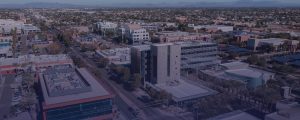Rent Stabilization Ordinance | Mobile Home Parks in Los Angeles
The following article provides an overview of the Rent Stabilization Ordinance (RSO) as it pertains to mobile home parks in the City of Los Angeles. The information has been compiled from the Mobile Home Park Reference Guide provided by the Los Angeles Housing and Community Investment Department and the Rent Stabilization Division. This summary aims to equip both tenants and park owners with a clear understanding of the RSO’s regulations, enabling them to navigate this framework with ease.
What is the Rent Stabilization Ordinance?
The Rent Stabilization Ordinance (RSO) was adopted by the Los Angeles City Council in 1979 to address the shortage of affordable and safe housing in the city. Its purpose is to regulate rents, protecting tenants from excessive rent increases while ensuring landlords receive fair returns for their rental units. The RSO aims to maintain housing stability and balance the needs of both tenants and landlords.
Mobile Home Parks Under the RSO
The Los Angeles Municipal Code states that if a mobile home in the City of Los Angeles received its first operating permit before February 10, 1986, it is subject to the RSO. This means that the rules and procedures that apply to rental units also apply to mobile home parks. However, there are some differences for mobile home parks regarding vacancy decontrol and annual rent increases. In a mobile home park, vacancy decontrol does not apply unless the mobile home is sold and permanently removed from the park. If the mobile home is sold in place, the rent for the space can only be increased by 10% or to the level of any existing comparable site in the park, whichever is lower. The annual allowable rent increase for mobile home parks can be given on the anniversary date of the last increase, regardless of how long the current tenant has occupied the space.
Mobile homes are subject to the RSO, regardless of whether rent is paid for the mobile home and the land it sits on or just the land alone. This also includes recreational vehicles located in mobile home parks or recreational vehicle parks, whether rent is paid for the vehicle and the land or just the land alone.
Registration
The RSO requires all landlords to register their rental properties, including mobile home parks and spaces within the city. This registration needs to be done annually between January 1 and the last day of February. If landlords fail to register and pay the fee on time, they may face late fees and possible collection actions by the city attorney’s office. It’s essential for landlords to register their rental units to avoid penalties and be legally allowed to collect rent. New owners have 45 days from the close of escrow to register, and they can recover part of the registration fee from tenants by adding a surcharge in June after giving them a 30-day written notice in May.
The current registration fee is $24.51 per unit or space, and a penalty of $36.77 per unit or space will be applied for delinquent registrations in addition to the regular fee.
Annual Allowable Rent Increase
The annual rent increase is determined based on the Consumer Price Index (CPI), which measures changes in the cost of living. For the Los Angeles area, this calculation is determined by averaging the CPI for a twelve-month period ending on September 30 of each year. The resulting percentage may fall within the range of 3.0% to 8.0%. It is important to note that the effective date for this rent increase is July 1 of the following year.
The exception mentioned above does not apply in the following circumstances:
- If the mobile home has been temporarily removed for repairs.
- If the mobile home has been replaced with a new mobile home that will be occupied by one or more of the same tenants.
The annual allowable increase for mobile home parks can be implemented on the anniversary date of the last increase, irrespective of whether the current tenant has occupied the space for twelve months or not. It’s important to note that the increase is not cumulative or retroactive. To comply with regulations, landlords must provide residents of mobile home parks with a written 90-day notice before collecting the increase.
Additionally, landlords have the option to increase the annual percentage by 1.0% for gas and/or 1.0% for electric service, provided that such services are available in the unit and are paid for by the landlord.
Capital Improvement Rent Adjustments
The RSO allows landlords to increase rent beyond the annual automatic increase for approved Capital Improvements. Capital improvements are long-lasting upgrades made to the property, like paving, recreation rooms, or landscaping. For mobile home parks, the improvements often benefit tenants, but utility services’ upkeep or replacement isn’t eligible for such rent adjustments.
Landlords must apply for rent increase approval for capital improvements, and the Rent Stabilization Division reviews and approves the amount and duration of the increase. The increase is passed on to tenants as a monthly surcharge, not subject to the annual percentage increase, and it ends after 72 months. If the costs can’t be recovered within 72 months, landlords can extend the surcharge period. If the capital improvement fails, the surcharge will be terminated.
The regulations include five guidelines for qualifying improvements:
- The improvement should mainly benefit the tenant, not the landlord.
- The improvement should last for at least five years.
- Regular maintenance and repairs are not considered capital improvements.
- The improvement should be permanently installed or not easily movable.
- The application must be filed within twelve months of completing the work.
Reasons for Evictions
Management has the right to end a mobile home lease for specific reasons, as outlined below:
- Failing to follow local or state laws after receiving notice of noncompliance from the government agency.
- Engaging in behavior that significantly disturbs other homeowners or residents, which includes causing damage or nuisances to the rental unit, common areas, or nearby buildings.
- Being convicted of serious crimes, such as prostitution, assault, or illegal drug activities, committed within the mobile home premises.
- Violating reasonable park rules or regulations after receiving written notice of the violation multiple times within a year.
- Not paying rent, utility charges, or reasonable service fees for at least five days after the due date.
- The park being condemned by the government, requiring evacuation.
- Changing the park’s use, with homeowners being given a 15-day notice before management requests permits for the change, and a six-month notice period after permit approval to terminate tenancy
In cases of eviction due to a change of park use, landlords are obligated to provide relocation assistance as per LAMC regulations.
Gaining a comprehensive understanding of the subject will prove to be highly advantageous for Mobile Home Park owners in the City of Los Angeles. By delving into the provided summary, park owners can attain clarity on the guidelines and exceptions pertaining to annual rent increases and mobile homes. This knowledge can empower them to navigate the Rent Stabilization Ordinance (RSO) more effectively and make informed decisions about rent adjustments within their mobile home parks.









